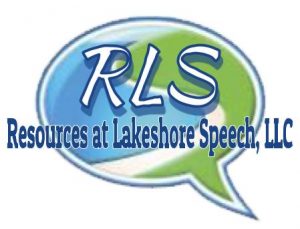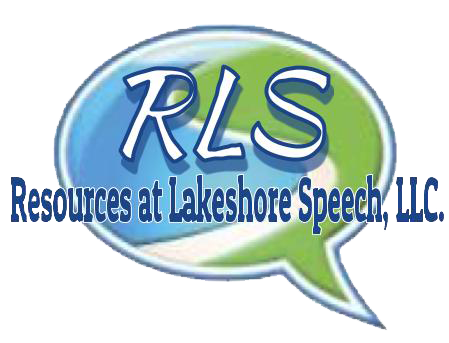Celebrating Thanksgiving with a child with Autism may require some preparations ahead of time and on the special day to ensure a comfortable and enjoyable experience.
Continue readingBe Spooktacularly Ready for Halloween with Speech Therapy
Discover how speech therapy can make Halloween a treat. Explore how speech therapy can help practice Halloween-themed conversations, boost confidence, and improve social skills.
Continue readingTeletherapy Tips for Families
As we are all beginning to adjust to teletherapy as well as online or elearning, we thought it best to share some tips to make you and your loved ones time in therapy, albeit significantly different than ever before, more successful.
- Count on some sort of technology failure – if you count on the fact that the mic won’t turn on or your wifi will be running slow, you won’t panic when it does happen. If there is a technology failure (on your side or on the therapist’s side), the first thing to do is breathe. Next calmly begin to troubleshoot. Prior to the appointment, you may want to trial the mic and speakers on the device you intend to use for therapy. If your bandwidth on your wifi is slow, as those in your home to stay off the network or not engage in activities (streaming videos) that use a lot of bandwidth. If the session can’t happen, you can reschedule. Flexibility is key.
- Create a “Therapy Space” or designate a “Therapy Space” for the duration of the session. You may want to create a ‘Therapy in Session’ sign with your loved one and hang it on the door of the room you are in for the session. If you will be in a shared living area, you may want to consider the use of a headphone and mic combination. This will decrease the amount of background noise your loved one will hear as well as the therapist. Consider scheduling therapy at a time when others in your family would be napping or engaged in more quiet activities as well. Creativity is key.
- Count on staying with your loved one for the onset of the therapy session. For individuals that may need support to pay attention, consider this time extra snuggle time. Have your loved one sit on your lap or very close to you during the session to help guide her/his attention to the therapist. This is time for your loved one to receive the critical therapy services needed as well as a time for YOU to better understand the techniques used to elicit specific behaviors, actions, and sounds from your child. Teamwork is key.
- Listen to the therapist and therapy session. Remember, this is your loved one’s therapy time, not necessarily yours. While it may be hard, refrain from answering the therapist’s questions for talking for your loved one. You may consider the situation/task that the therapist is asking your loved one to do is too difficult, but creating these situations to ‘push’ your loved one to the next level is necessary in progress towards mastery of goals. Trust is key.
- Carryover of all the new skills learned during the therapy session (both for you and your loved one) is extremely important for everyone! You will have new skills to support your loved one as he/she works on speech-language skills. Share what you have learned with others in your family. Help everyone realize the necessary supports to help your loved one succeed. Practice is key.
Keeping in mind the importance of flexibility, creativity, teamwork, trust and practice will ensure your loved ones success with this different approach to speech-language therapy.
More information about the telepractice services offered at Lakeshore Speech can be found at www.lakeshorespeech.com/telepractice or by calling 1-440-417-4190.
Yours in Speech,
Lakeshore Speech Therapy, LLC
Learning to be Social
The calendar doesn’t lie. How is it we are only 10 days away from Valentine’s Day!? With all the attention on sharing love and kindness on that day (as well as every day), we need to take a moment to pause and take into account the skills that bring people closer are really hard to learn.
Some loved ones pick up on social cues and nuances without issue and others require a very clear explanation. As parents, taking the time to frame acceptable and unacceptable behaviors for your family’s values is crucial. Society dictates a number of ‘unwritten’ rules, which makes learning these skills even more difficult for some. Providing a safe environment to discuss and process these ‘unwritten’ rules is important at every age of development. The American Speech-Language Hearing Association (ASHA) provide a nice resource for families focused on this area of speech and language.
Your friendly speech-language pathologist would be happy to help you and your family with any questions or concerns you may have related to social communication, social skills, or social pragmatics. Please feel free to give Kelly a call at 440-471-7190 to set up an appointment.
Yours in Speech,
Lakeshore Speech Therapy, LLC.
Hope in the New Year
Happy New Year! It’s a new decade filled with hope! Hope for a year filled with much health and happiness! Hope that the closets will organize themselves! Hope that somehow, someway tiny building blocks will no longer find themselves in the path of an adult walking barefoot. Hope that dinner will be made and eaten without issue. Hope, hope, hope!
Hope is what keeps us all moving forward. Setting goals or evening having ideas of what hope can bring to the New Year is expected at this time of year; so long as this hope isn’t a disguise for bringing the feeling of failure to the New Year as well.
Sessions with a Speech-Language Pathologist is filled with the promise of hope and belief in your loved one. Your therapist believes in your loved one and his/her language potential all the while continually promoting your good work at home and navigating the developmental process to guide you all towards mastery and success. Walking out of a therapy session, you and your loved one should have a renewed feeling of strength to continue working on the specific skills, techniques, etc. until you see your therapist again.
Cheers to the New Year filled with much hope, happiness and health!
Yours in Speech,
Lakeshore Speech Therapy, LLC
Special Gifts
This message is short and sweet. First and foremost an open apology for seemingly abandoning my post writing these blog message this month. While I wish there was a great explanation, but all I really can say is life definitely gets in the way of the best of intentions!
Second, we at Lakeshore would be remiss if we didn’t take a moment to thank each and everyone of our amazing clients and families. You appreciate your trust in us to provide your loved one’s therapeutic services. We are thrilled to have you all as part of our Lakeshore Family.
Lastly, please take a moment to look around to see all the amazing gifts in your world this holiday season. These gifts aren’t wrapped in festive paper with a bow. These gifts are wrapped with your arms and love. Enjoy these gifts this holiday as we will enjoy ours.
Happy Holidays!
Lakeshore Speech Therapy, LLC
Sensory Sensitive Holiday Fun!
December has arrived and as with every year, it seems as if the calendar speeds up during this festive time. Packing in all the shopping, decorating and taking in the holiday fun can seem overwhelming. The elves at Lakeshore Speech Therapy took a little time to compile a one stop list of events in the Northeast Ohio area that are sensory friendly. These events are not only sensitive to the amount of unnecessary smells, sounds and sights, but often the pace of the event is slowed as well as those ‘working’ the event have been given some information on how to best engage with individuals with special needs.
- Sensory Friendly “Carol” by Great Lakes Theatre
- Krafts with Mrs. Clause
- Sensory Friendly Santa
- Children’s Museum of Cleveland – December
- Santa Cares
- Westlake Porter Library
- Lakewood Public Library
- Cleveland Public Library
- Cuyahoga Library
- AMC Movie Theater Sensory Friendly Movies
- SkyZone – Sensory Hours
- Kringle’s Inventionasium (While there is not a specific a specific sensory friendly event, when given advanced notice, the website indicates accommodations can be made.)
We hope you are able to take a few moments and enjoy these events with your loved ones.
Yours in Speech,
Lakeshore Speech Therapy, LLC
Revving up the holiday season!
The holiday season is revving up to get ready to roll. While we acknowledge there are significant stressors for you and your loved ones at this time of year, we could also consider the stress and comfort of extended families and friends. It is not your job to do everyone else’s job, however, taking a few moments to realize the impact you and your loved ones have on others could make family and friend gatherings more enjoyable for everyone.
Providing information about characteristics that are unique to your loved one, may create a more tolerant and understanding environment. A simple phone call, text or email to the host or hostess the explain those ‘quirks’ that you and your immediate family may not even notice. For example, let the homeowner know if your loved one needs to see all the bathrooms upon entering a new location or if your loved one may go around the home and close all the doors.
Help your extended family and friends better understand your loved one’s form of communication. Share his/her successes and any ‘triggers’ that may exist (ie: asking more than 3 times to clarify a phrase or word). Provide a few simple tips for the best way to engage your loved one (ie: asking yes/no questions or asking questions about the here/now vs past/ future).
Anticipate situations that may prove to be very stressful not only for you and your loved one, but the host/hostess. Communicate that you may be bringing a different meal for your loved one to enjoy vs eating the traditional meal. Share that your loved one may take a ‘break’ during the meal and what that can be expected (ie: your loved one may need to take a break in a room where you can guide your loved one to quiet area).
Open and host communication and preparation can create a setting where everyone enjoys their time together creating memories!
Yours in Speech,
Lakeshore Therapy Speech, LLC.
Making a Self-Care Plan
All of the clocks have finally all been changed (except for one, there is always ONE clock in the house that just never quite makes the cut and is never changed), the Halloween decorations have been put away and what is that sound? Silence. The calm before the Holiday Season frenzy.
Take a few seconds of this ‘down time’ to focus on realizing the importance of self-care. Parents and caregivers of individuals with special needs typically do not stop to worry about themselves. Not only is this pattern unfair to your loved ones, but more importantly, it is not fair to Y.O.U.
Consider the five minutes it takes you to read this blog post as the start of your self-care routine. Consider taking this time to make a plan for yourself. Give yourself the opportunity to refill your tank so you can cruise into the Holiday Season ready and rejuvenated.
Yours in Speech,
Lakeshore Speech Therapy, LLC
A Candy Plan!
You’ve planned the costume, you’ve walked the route, you’ve practiced knocking on doors… a few more thoughts to help make your family’s trick or treat evening sweet.
What will you do with all that candy? Once your loved one sees her/his bounty of sweetness, she/he may not want to part with a single piece. Create a plan and share that plan well before that candy is in your house.
Will your family spend the last minutes of Halloween counting and sorting candy? Will there be a huge candy trading event in the middle of your living room? Providing a plan for the evening can make a difference in ending the evening on a sweet note.
Create a ‘buy back’ program if you would prefer your loved ones not have free access to that much candy. Make your program work in a way in which your loved one will receive a certain number of dollars, stars, tokens, etc. when they ‘trade in’ a certain number of pieces of candy. Check with your dentist to see if they are offering a buy back program.
Create a ‘decorate a gingerbread house’ program. Decorate a box with pictures of gingerbread houses. Put candy that could be used to decorate a gingerbread house in the box. You now have everything you need to decorate your holiday gingerbread house.
Create a ‘week long candy plan’. Divide a shoe box into 7 sections. Place one or two pieces of candy in each section. Give your loved one the opportunity to choose the candy in one section every day.
Whatever your plan, share it with your loved ones well before the candy starts pouring in the house. Make it very clear where the candy will be stored and what the plan will be once it is collected. It may feel like you’re taking the fun out of the candy collection, rather you are providing the framework for a fun and enjoyable evening from start to finish!
Yours in Speech,
Lakeshore Speech Therapy, LLC.











